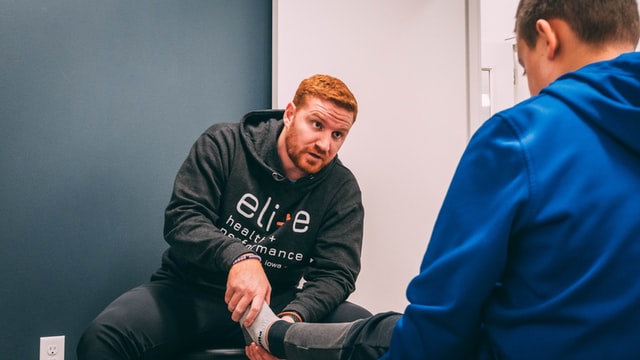
Physiotherapy is a healthcare profession that improves a wide range of physical problems associated with the different systems in the body. This includes the neuromuscular, musculoskeletal, cardiovascular, and pulmonary systems.
Physiotherapy is necessary at any stage of life, whether recovering from a major health crisis, managing long-term conditions, or preparing for childbirth. It also helps people maintain their health by addressing issues that arise during the aging process.
Read on to explore the transformative potential of physiotherapy, as we navigate through its diverse applications and profound impact on human health and vitality.
1. Injuries
Physiotherapy is a healthcare profession that assesses, diagnoses, treats, and manages musculoskeletal conditions, injuries, and disabilities. It employs a variety of techniques such as exercise, manual therapy, and electrotherapy. It aims to enhance joint mobility, and muscle flexibility, and improve overall function. It can also reduce pain and the need for pain-relieving medication.
Besides treating injuries, physiotherapy is also an important part of injury prevention programs for athletes. It helps to build stronger muscles that can withstand stress from physical activity and thus prevent injuries in the future. It also assists in reducing the risk of sports-related injury through education on proper body mechanics and implementing appropriate protective gear.
Central VIC Physios helps maintain health for patients of all ages by promoting movement and maximizing physical potential within the spheres of promotion, prevention, treatment/intervention, rehabilitation, and re-education. Physiotherapy can also be used to assist in the management of chronic conditions such as cardiovascular disease, respiratory diseases, stroke, multiple sclerosis, and Parkinson’s disease. It is science-based and takes a whole-person approach to patient care. It also promotes participation and empowerment in health through education, awareness, and involvement. Ultimately, physiotherapy is one of the most important healthcare services today.
2. Chronic Conditions
Physiotherapy also addresses chronic conditions such as arthritis, fibromyalgia, and respiratory disorders (such as asthma, obstructive pulmonary disease, and cystic fibrosis). Through exercise, pain management techniques, and education, they can improve quality of life and assist with symptom control.
Within the professional community, there is a great deal of terminology variation when it comes to the use of the term “chronic disease”. Some academic studies define chronic diseases as those that last for more than a year and require ongoing medical attention or limit activities of daily living. Other definitions focus on those with a high probability of death in the near future. Some of the most common chronic diseases include heart disease, cancer, stroke, diabetes, and arthritis.
Managing chronic conditions is a huge challenge. It is important to find a support group to help with the emotional and social aspects of the disease. It is also important to stay connected to others who have the same condition to share tips and strategies for dealing with the illness. Staying active and maintaining a healthy weight, avoiding tobacco and excessive alcohol intake are the keys to preventing and controlling chronic diseases and promoting physical health.
3. Pregnancy
During pregnancy, the body goes through a lot of physical changes and this can cause pain for the woman. This is where physiotherapy comes into play. It helps in reducing back pain, reduces involuntary urination, and helps in the smooth delivery of the baby.
Physiotherapy advances in helping women who have problems with pelvic floor issues such as diastasis recti or incontinence. In this case, a physical therapist can provide specialised exercises that can help strengthen the muscles around the pelvic area and thereby reduce the risk of complications during childbirth.
Pregnancy is a time of joy, but it can be quite uncomfortable for many women. This is because the body requires high levels of strength and flexibility to induce labour and deliver a fully grown baby. Physiotherapy helps to ensure that the woman is able to endure the process by training her in various positions and exercises that can increase the chances of easier labor and delivery.
In addition, a physiotherapist can help in reducing the swelling that is a common problem with pregnant women. Using manual techniques, exercises, and education, can help the woman reduce inflammation. This can make the mother feel much more comfortable. This is because it allows her to move more freely and can help in avoiding any long-term effects of the condition.
4. Ageing
With a global population aging, physiotherapy is becoming even more necessary. As the body ages, the risk of injury and pain increases. This is due to the natural processes of cellular and molecular damage that can occur over time. These changes can lead to muscle weakness, impaired mobility, and a higher likelihood of falls.
Physiotherapy addresses these issues by using techniques and exercises to help promote strength, improve balance, flexibility, and coordination, and decrease the risk of falling. It is a great way to prevent musculoskeletal conditions such as osteoarthritis and manage other health conditions including heart disease, diabetes, and lung disorders.
Physiotherapists have been trained to provide care at all levels of healthcare and are well-positioned to recognize the decline in functional abilities and quality of life in older adults. This can then trigger appropriate referrals to other healthcare providers for further assessment and management. As a result, they can play a valuable role in bridging public health and clinically-based care. They can also work collaboratively with community-based senior centers and other organizations to develop programs that address the risks associated with functional decline, such as preventing falls. This enables them to deliver comprehensive, patient-centered healthcare services. They can do this through a combination of education, exercise-based programs, lifestyle modification advice, and the provision of aids and appliances.
In an era where health challenges span across all ages and stages of life, physiotherapy emerges as a beacon of holistic care. From injury rehabilitation to chronic condition management, from aiding pregnancy discomfort to empowering aging individuals, its transformative power resonates deeply. As we embrace the diverse applications and profound impacts of physiotherapy, it becomes increasingly evident that this discipline is not merely a service but a cornerstone of comprehensive healthcare, enriching lives and restoring vitality with every session.

